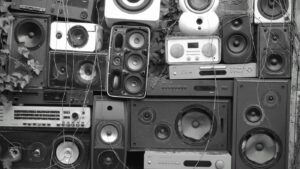
Receiving stolen goods is a crime that involves the theft of property by one person and given to someone else. The person receiving from the person who stole it can be charged with receiving stolen goods. However, in some cases, individuals may unknowingly find themselves in possession of stolen property. Below we explore the legal aspects of receiving stolen goods in Illinois from the perspective of someone innocently receiving such goods as a gift.
Receiving Stolen Goods Under Illinois Law
Under Illinois statute (720 ILCS 5/16-1), the offense of receiving stolen goods involves knowingly obtaining, possessing, or selling property that has been stolen. To be found guilty of this offense, the prosecution must establish beyond a reasonable doubt that the accused had actual knowledge that the property was stolen or was willfully blind to its stolen nature. This willful blindness implies that the person suspected that the property might be stolen but chose not to investigate further.
What if Someone Innocently Receiving Stolen Property?
In the case of innocently receiving stolen property, such as AirPods received as a gift, it is vital for the accused to demonstrate their lack of knowledge about the item’s stolen status. The defense must establish that there was no reason for them to believe the property was stolen or that they had no suspicions to warrant an investigation. This can be a challenging task, as the burden of proof lies with the defendant to establish their innocence.
Defenses to Receiving Stolen Goods in Illinois
Several defenses can be employed by individuals accused of receiving stolen goods in Illinois. These defenses can be crucial in securing a favorable outcome for the defendant.
- Lack of Knowledge: One of the primary defenses against a charge of receiving stolen goods is establishing that the defendant had no knowledge about the stolen nature of the property.
- Lack of Intent: Illinois law requires that the possession or receipt of stolen goods be done willfully, meaning the individual knowingly engaged in the act. If the defendant can show that they did not intend to possess stolen goods, it can be a valid defense against the charges.
- Lack of Evidence: An experienced attorney can thoroughly investigate the case and challenge the prosecution’s evidence. If there is insufficient evidence linking the defendant to the crime or proving their knowledge of the stolen property, the defense may move for dismissal or seek a not-guilty verdict.
Glasgow & Olsson: Your Defense Against Receiving Stolen Goods Charges
Receiving stolen goods is a serious offense under Illinois law, but innocent individuals can find themselves unwittingly caught in such situations, like receiving stolen Apple AirPods as a gift. Demonstrating a lack of knowledge and intent can be a vital defense in such cases. If facing charges related to receiving stolen goods, seeking experienced legal counsel, such as Glasgow & Olsson, is crucial to mount a strong defense and protect one’s rights.
Knowledge is the key to staying on the right side of the law and preventing inadvertent involvement in criminal activities. When you need an attorney, experience matters. Contact Glasgow & Olsson today to schedule your confidential consultation.



